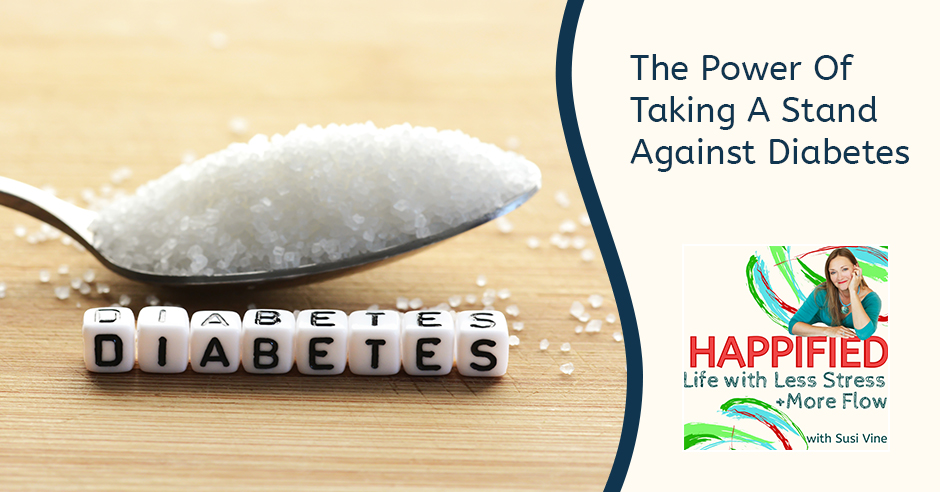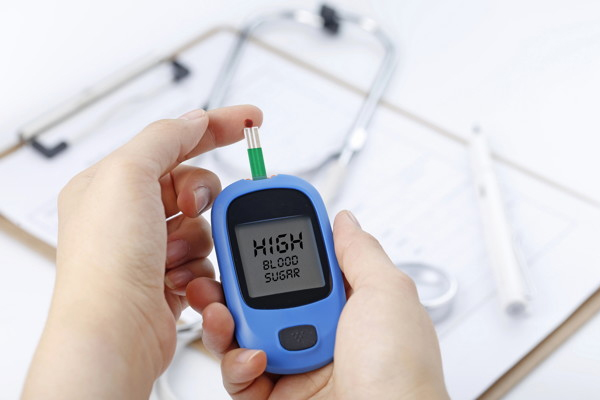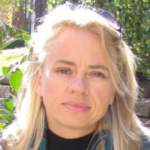
Irina Strunina is the creator of SmartMove360. Irina’s goal is to support recently diagnosed diabetic clients to take a stand against diabetes. If you have diabetes and need help exploring ways to recover your health through dietary and lifestyle modifications, this episode is for you!
In the episode, we discuss:
- How dietary habits can harm our health,
- Why “helpful advice” can be harmful,
- The emotional process many patients go through after receiving a diagnosis,
- How mindset can impact the potential for recovery,
- Methods of motivation to maintain a healthier lifestyle.
Follow Irina on her SmartMove360 Facebook page to learn about upcoming events, like her Pantry challenge!
—
Watch the episode here:
The Power Of Taking A Stand Against Diabetes
Irina Strunina takes lessons learned from her husband’s experience with type 2 Diabetes and helps people with recent diagnoses navigate the possibilities of lifestyle change to help restore their health.
I’m happy to have all of you join us for this terrific conversation with Irina Strunina. She is the Founder of SmartMove 360, inspired by her own journey through her husband’s experience after his diagnosis and following illness with diabetes. She now is passionate about helping patients and their families recognize how lifestyle changes can turn things around, and inspire hope rather than resigning themselves to live with this disease. Thanks for joining us. I know you’re going to love this episode. Follow her group on Facebook, SmartMove 360. Enjoy.
—
I’m so happy to have everyone here with us while I welcome Irina Strunina. We shared a lot in common in our passion to help people recognize that they can make big changes to their health through lifestyle modifications. Irina is passionate about helping people who have recently been diagnosed with type 2 diabetes. This comes from a personal mission since she lived this experience when her husband had this diagnosis. She did her own research to discover ways to help him feel better without relying only on Western medicine. In the time since, she has created SmartMove 360 to help those who are facing new diagnoses find a way that will work with their particular situation so they can feel better without dramatic changes in their lifestyle. She has a couple of events coming up. We are going to talk about those. First, I would love to welcome Irina. Thank you so much for joining me.
Thank you for having me. I’m happy to be here.
I’m happy to have you here too. I love that we can meet across the country virtually now. Atlanta, Georgia is feeling a little bit more of fall weather than we are here in San Diego. Tell us a little bit about your own story. How long ago was this experience when your husband had this diagnosis?
Mindful eating is key to a healthy lifestyle. Share on XIn 2003, he got diagnosed. For several years, we are managing his condition more or less. There were ups and downs but we were able to control them. Because diabetes is a disease that affects also your immune system, he contracted the flu on one of the flu seasons and it hit him hard. As a result, he had kidney complications and some other issues that he had. It’s from there, in about a year and a half, it has snowballed going down the hill fast. Eventually, he passed away. It was several years ago.
You went through quite a journey since his diagnosis. Unfortunately, it’s so true that in these types of auto-immune disorders, when the body starts to be dysfunctional, we’re so much more susceptible to little innocuous things. The flu isn’t innocuous. The virus is, especially in 2021. We recognize they can have a huge impact, but when the stage has already been set, it can be even more devastating when these things start to affect our body systems. I’m sorry for that process, but I am glad that you found a way to move forward with your mission from that whole experience and bring that out to a wider audience. I feel like we need to be more empowered in recognizing how we can make small changes that have huge effects down the line. What were some of the first things that you found? In 2003, Google was around, but it was not as robust as it is now. You didn’t get to spend some days online and have everything at your fingertips. This was quite an education process as well.
This is the reason why I am now offering help to people who were recently diagnosed with diabetes because I understand those who are so-called veterans. They already have quite a time to learn, to visit with doctors, to explore their body’s ability to cope with different irritants, different food choices and lifestyle choices. They know what works for them and what not. There are still always plenty to learn, but for those who are new, this is a lot to learn in a short period of time. This is generally speaking, but in addition to it, there are so many volunteers who are offering you help. Volunteers are meaning good, but what they do most of the time are bringing confusion because few are speaking in unison. One is talking about one thing and another is talking about another thing, and the fourth was talking about the fourth thing. There are so many points that you got to address. Everybody’s feeling that this is the most important thing. People are finding themselves under this avalanche of information, plus they don’t feel well and scared. They’re sometimes disappointed, mad, depressed and in denial.
It’s hard to navigate. Life changes in one doctor’s visit. You walk into the office. You do have the results from your tests. You know that you didn’t feel well. You have a suspicion that something is wrong, but you are holding yourself together more or less. The doctor is telling you, “All the results and everything is proving that you have diabetes.” This is like the end of life. The people leaving the room is a different person. They suddenly feel everything under the magnifying glass. It’s hard to handle. A good situation is if you have a family member, your partner, maybe your kids or your parents who will be supporting you and helping you, but help is needed when it’s asked for.

Sometimes all I need is to let me talk it out. Don’t try to feed me with a spoon or sometimes vice versa. Give me something to eat because I don’t want to do anything, but I know that I need to eat. If you have a partner who is working with you, this is a good situation. Often, people don’t have a partner and your partner doesn’t understand what you’re talking about or busy with what they are doing, or sick with their own sicknesses. There is also a situation when you don’t want to share with anybody. You have a partner but you don’t want to show your weaknesses. This is what I am about. I recognize all these issues because I’ve been through them.
I had a husband who was in denial and didn’t want to talk about it. I still don’t know if he learned about it more than the doctor said. We would go to the doctor’s office. I would go with him every time because I needed the education too. I was luckily in a position to be able to go with him, and maybe give the doctor my observation of what is going on because it’s hard to see the picture when you’re in the frame. I could see what is happening to him, but he may not notice it. This is something that I live through. I know that there are some people like that out there. This is what the entire program was. I’m taking people from diagnosis and we’ll go through the analysis of where they are. We will find out what is happening, how do they feel, and what do they know. It is very important to know what is that disease about or where did you find this information if you have any information.
From there, we will be building up. Creating new habits is a process. It takes time. If it requires you to break yourself and change yourself completely, it’s a struggle. When it’s a struggle, you oftentimes don’t stick with it. You’re going back to what you were. It has to be gradual. It has to be more or less natural. You have to learn to live with it, enjoy it and be happy that you have it. I’m talking about habits. I just heard somebody said that diabetes is not the diagnosis. It’s a blessing because that condition that you find yourself forces you to change your bad habits and to start living with healthy habits. You get your diagnosis under control. You may reverse it, so you don’t have any effects from this disease, and you live a healthy life. You are more productive, happier and better looking. Everything is better. It depends on how you look at it. It may be the diagnosis. It’s not a sentence. It’s maybe a blessing.
There are so many things I want to come back around and unpack in that, but first and foremost, the mindset and the way that we frame things is so important because this can be the wake-up call that lets you change the trajectory of your life. Because if it wasn’t for this diagnosis of diabetes, it could have been heart disease. It could have been something else. It could have been something that “lay dormant” until an event happened that can be impossible to recover from. This warning light can be a yellow light instead of a red light. It doesn’t mean it’s the end of life as you know it per se. It’s that opportunity to change your habits, to take a closer look, and to discover what works for you and what doesn’t work for you.
Exercise brings your mood up and makes you ready to face the next challenge for the day with a smile. Share on XWhat you were saying about the gamut of emotions is so important. I’ve heard this 2021 as we’re going through this experience of living with COVID and COVID fatigue, it’s almost like we go through the process of seven stages of grief. Denial, recognition, mourning, all of those are a natural process of reckoning with a new situation and they aren’t linear. We’re going to move through it. We’re going to come back. We’re going to have a good day and a bad day. We’re going to feel hopeless. We’re going to feel empowered. We need to give ourselves space. The people that we love need to find a way to give ourselves that space so that we can move through it. When we stuff our emotions, that adds to the load that we’re carrying. That doesn’t help anybody.
The third thing that I wanted to come back around to is what you said about everyone wants to help. We’re very helpful people on the whole. We think that our ideas are the best. The thing that we heard about is the most important, most correct and most relevant information. We push all of this on someone whose cup is already overflowing. They don’t have room. As well-meaning as that support is, it can be confusing and overwhelming. It can set them off and even move people to not being open with you because they’re afraid of that input when they can’t handle it. It’s hard enough as you lived to be in the position of being the spouse, the partner, and the caregiver when you’re trying to encourage someone to step into this new lifestyle and recognize that this is just an opportunity. It sounds a little optimistic, a little Pollyanna, but you can shift your perspective to see it as an opportunity to transform your health, as opposed to a term or a sentence.
It’s so important that people recognize that if someone you love or care about has a diagnosis like this, offering your support and being present is huge. Always recommended it. Ask how you can support, but don’t charge in with all the answers, everything at the front. Sit back and see how you can show up and support the person you care about rather than overwhelming and being part of this. That tends to send people into seclusion. They tend to isolate themselves and throw the baby out with the bathwater. I love that you are in this position now after living this experience to help the families, but it seems most importantly, you want to be able to connect with the person who’s received this diagnosis and help them recognize the opportunities that they can find here.
I am positioning myself in phases. One phase is you have the diagnosis. You need help to navigate through this ocean of information and everything that is available that you can find on the internet. We talked about people but left alone, Facebook, the internet and all this, how much information is there? It is very controversial. Not everything is aligned with another. You have to understand what exactly is good for you because something that is good for one is not good for another. This is one of the services that I’m offering. I’m here to serve and help. The other one and probably the most important one is the importance of self-care so you could avoid this situation altogether. This is a lifestyle disease and diagnosis along with high blood pressure, cardiovascular diseases and obesity. These are all lifestyle diseases that can be avoided. I am a big advocate for an active lifestyle, mindful eating, food selection and food choices. That’s the other phase that I like to show up with. These are my morning shows. This is the prevention.

You can find Irina on her Facebook page, SmartMove 360. She is going live every day. She has been consistent since we went into this new lifestyle of 2020. Since March 2020, she’s been going live daily. If you want to get little doses of inspiration and insights, I highly recommend it. She also has a standing offer but trying to connect with people with these recent diagnoses to get a broader point of view. To do a bit of market research, but to see where people are, what they are experiencing in order to address the situation and offer the most supportive tools. You can also connect with her through her Facebook page to book a free strategy session, or to lend your own experience and information so that she can aggregate and offer a more robust service.
This is such a widespread situation. As you were saying about the lifestyle, I’m passionate about how stress affects people. People are tuned into emotional stress. It can also lay the foundation for diabetes. Cortisol messes with our blood sugar balance, which leads to that insulin resistance which sets the stage. Our environment has a huge impact because the chemicals that we are experiencing in our environment, in our lifestyle, in our homes and our cleaning products start to undermine our overall health so that these types of diseases and conditions can take root. It’s so important to recognize that through lifestyle change, through changing our perception and the way that we approach things, through changing the way that we handle our stress, through changing the way that we shop and stock our cabinets and pantries, we can make big differences. I also wanted to talk about something that you’ve been offering where you’re going to share your pantry challenge. Can you tell us about that?
This is a fun activity that I came up with. It was useful for me because we were stuck in the house for several months. Some of us were eating from home. There were still take-outs. There were some different drive-throughs, but for those of us who were staying in the house, cooking what we have in the house, shopping and supplying ourselves with different snacks and stuff. I had to drive before and when I drive, I sometimes snack but most of the times I just drive. You have this extra 40 minutes that you use to drive and you are sitting all the time, “I might as well have a snack.” The amount of snacks in our pantry is big now. I thought that it will be a good idea. We’re changing the season to go through what we have to see what we can use and what shouldn’t be there, to verify how much of what we have. Maybe something has to be replenished and something has to be thrown away. Also, while we’re doing that, to learn about what we have.
We learned a little bit about reading the labels. We learn a little bit about fruits and veggies and different ways of keeping them, and a little bit about oils and the different dry food. What is usually in our pantries, we are discussing and finding. I have a little challenge, homework. They’re simple. They’re fun. I also showed different ways of how you could store your supplies so it will be easy for you to find them and also know how much you have of them. This is the challenge. It’s a quick video in the morning, the homework, and then the live session in the evening so we could discuss the findings of the day.
There are still always things to learn. Share on XI love these opportunities to take a little bit of a deep dive without drowning in information. Every day, smart, actionable, attainable and time-sensitive goals. These smart goals are what move us forward. When we give ourselves an assignment, I’m going to get all the junk out of my pantry, we put it off until we have a whole day to devote to getting that task accomplished. We’re good at putting that off again and again. I used to work with people to help them declutter and downsize their homes. I would suggest to them when I met them right upfront, give yourself 30 minutes a day or an hour a day. If you’re on a roll and you don’t want to stop, then that’s terrific, but schedule these little installments to make upgrades and it will be much more achievable. It won’t be such a chore to make these changes.
As you say, once you get the junk out of the pantry, once you see everything that you have there, and you’re storing whole, healthier foods in a way that’s going to keep them longer and more easily available, it’s a total game-changer. You change the way that you shop, you stop bringing these things into the house, and it’s a little easier to resist. You’re not always ignoring the potato chips or the cookies on the shelf. People can connect with you through your Facebook page to learn more about the challenge.
On my SmartMove 360, there will be a link because it’s a special group. I don’t want everybody to be flooded with our exercises. You could go there, register for the challenge, we’ll meet there and we’ll do the activities.
I have a cabinet make-over that I do occasionally myself to tackle those cleaning products that we tend to let accumulate under the cabinet. I love breaking that down into smaller installments so that people will take action and get things done. What else would you like to share with us? I touched briefly on how stress can impact our health and perhaps set the stage for diabetes. Is there a way that you love to address stress yourself?

I used to be an athlete. I used to do cross-country skiing back in Russia. In Atlanta, it’s hard to do cross-country skiing. There is no snow, so I had to find alternatives like jogging or walking. I have a group of friends. We meet regularly and we do the walking. The new chapter that I started, every week I would come outside. I do my walk and I do my talk of short, little speeches and updates of what’s going on here in Atlanta. I am wearing my Fitbit. I also have on the phone the application that’s called Sweatcoin. Sweatcoin was fast. They acted on quarantine. What Sweatcoin is you walk and it counts your steps outside and it transfers it into these Sweatcoins. With those Sweatcoins that you accumulate, you could buy something. Maybe a one-month subscription for audiobooks.
If you’re a marathon runner, you could purchase for yourself a ski vacation because you’re making much more steps than the regular person. How did they react? They added one enhancement, twenty minutes boost. Let’s say you made 2,000 steps, instead of counting 2,000 steps, they will count 4,000 steps. You can forget it altogether but for me, twenty minutes I can do. Since then, I’m walking every day for twenty minutes. This is what doctors are recommending, not the major activities where you have to kill yourself. It’s great once in a while if you’re an athlete, but for everyday activities, you don’t need to do too much, but you need to do something. Twenty minutes is a good increment of time. Plus you gain a few Sweatcoins and you could get something out of it. What I did so far was donating those Sweatcoins to different fundraisers and crowdfunding. There is also an opportunity like this.
In addition to keeping blood running through your body, delivering oxygen to your brain, promoting the hormones of happiness and all these activities, when you did some exercise, especially in the morning. Not necessarily strong exercise, but twenty minutes of activities, you start your morning and you already did something. You’re proud that you did put your sneakers on, you went out and you did twenty minutes. This is a good thing. It brings your mood up, not from the chemical perspective. This is another thing to check out on your plan for the day. You’re up here and when you are in a good mood, it’s much easier to attack the next challenge that you may be having during the daytime. It helps you to stay with a smile through the day and see the good things that are surrounding you because they are there. Maybe they are hidden. Maybe you have to force yourself to see them, but they’re there. When your chin is up, you see them easier. This is about mood control, stress control, and the way how I do it for myself.
That’s one of my favorite tips. It’s so important to embrace the exercise that you enjoy doing and not psych yourself out thinking you’re not up to the level of being a major athlete. Start where you are. Start with ten minutes a day and build to twenty minutes a day. That’s exactly the kind of exercise that breaks that cycle of stress, lifts your mood, and you’ve got that feeling of accomplishment right out of the gate, first thing in the morning. It’s such a powerful exercise. I’m excited to hear about the Sweatcoin app. I’m going to check that out. I’ve been collecting fitness apps. That one I had not come across, but even more so, first, you can choose prizes after you’ve reached certain milestones, but to be able to give back and support charities or crowdfunding projects, that’s tremendous. I’m excited to share that one too. Thanks for that great tip. Thank you so much, Irina. It’s been such a treat to spend time with you. I’m so glad that you joined us.
I’m happy to meet with you and spreading good information around. This is all good. Thank you.
It is my pleasure. I love to share some time and space, and help good people doing good work reach more people. Thank you for joining me. I’m wishing you all the best.
Important Links:
- SmartMove 360 – Facebook
- Sweatcoin
About Irina Strunina
 Experienced Manager with a demonstrated history of working in the health wellness and fitness industry.
Experienced Manager with a demonstrated history of working in the health wellness and fitness industry.
Skilled in Negotiation, Sales, Cooking, Customer Services, and Team Building.
Strong community and social services professional with certifications in Nutrition, Heart Disease and Diabetes from Wageningen University & Research.
